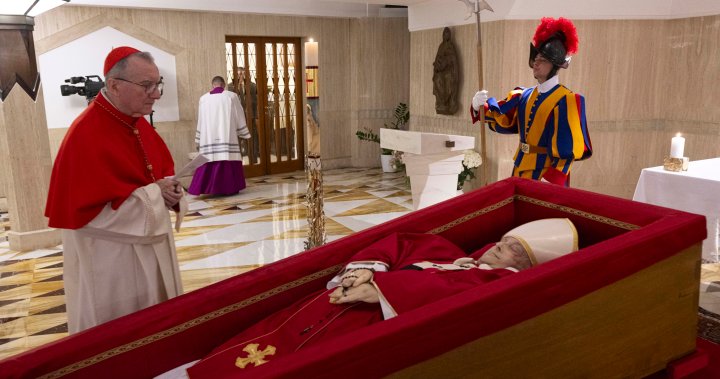Pope Francis died on Easter Monday, April 21, 2025, at the age of 88 in his Vatican residence, Casa Santa Marta, following health complications that began with bronchitis and progressed to bilateral pneumonia. His passing marks the end of a papacy noted for inclusiveness and global outreach. The funeral Mass is scheduled for April 26, 2025, in St. Peter’s Square, with extensive international participation expected for the subsequent nine-day memorial period, known as the Novemdiales. Preparations for the 2025 papal conclave to elect his successor are underway, set to begin on May 7.
Pope Francis, born Jorge Mario Bergoglio in Buenos Aires, Argentina, assumed the papacy in March 2013. His tenure was distinguished by efforts to address issues such as climate change, social inequality, and interfaith dialogue. He was widely recognized for advocating a more compassionate and inclusive approach within the Catholic Church.
Health Decline and Final Days
The Pope’s health began to decline several weeks prior to his death, initially diagnosed with bronchitis. Despite medical interventions, his condition worsened, developing into bilateral pneumonia, which ultimately led to respiratory failure. Vatican officials reported that he received round-the-clock care at the Casa Santa Marta residence.
Funeral Arrangements and Memorial Period
The funeral Mass is set to take place on April 26, 2025, in St. Peter’s Square, Vatican City. The event is expected to draw religious leaders, dignitaries, and faithful from around the world. Following the funeral, the nine-day Novemdiales memorial period will provide an opportunity for reflection and prayer in honor of Pope Francis’s legacy.
Preparations for the 2025 Papal Conclave
In accordance with Vatican protocols, preparations for the papal conclave to select the next pope have commenced. The conclave is scheduled to begin on May 7, 2025. Cardinals from across the globe will gather in Rome to deliberate and vote in secrecy until a new leader is chosen to guide the Catholic Church.
Global Reaction and Legacy
Pope Francis’s passing has elicited a wave of condolences from political leaders, religious communities, and humanitarian organizations worldwide. His commitment to outreach, humility, and reform made him a pivotal figure in modern religious history. Analysts note that his death marks a significant moment for Catholics and the wider global community as the Church looks toward its future leadership.
Pope Francis’s death signals the close of a significant chapter in the Catholic Church’s history. His papacy was marked by a commitment to inclusivity, social justice, and global engagement. As the Church enters a period of mourning and reflection during the Novemdiales, attention now turns to the forthcoming papal conclave, where a new leader will be chosen to continue guiding millions of faithful worldwide. The global outpouring of respect and remembrance underscores the lasting impact of his efforts to foster compassion and dialogue across diverse communities. The months ahead will be pivotal as the Catholic Church navigates this transition and honors the enduring legacy of Pope Francis.

